|
|
|
|
|
|
|
|
Today no Arctic science events are scheduled.
|
Media
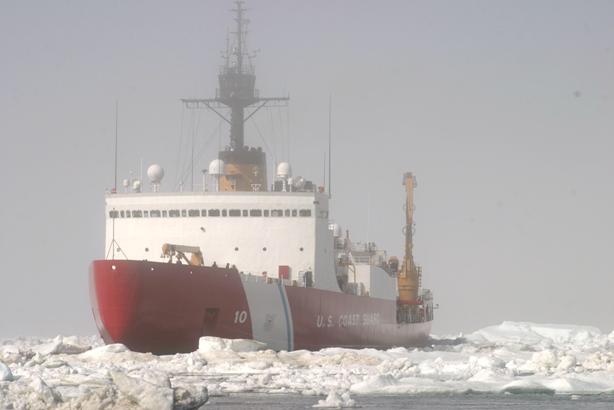 The Only US Heavy Icebreakers Broke Down on a Mission to Antarctica Again. The Only US Heavy Icebreakers Broke Down on a Mission to Antarctica Again. The Polar Star, the only operational U.S. heavy icebreaker, reached Antarctica on its annual resupply mission to McMurdo Station on Jan. 17 - but not without encountering difficulties along the way. First, one of the electrical systems started smoking. The incident damaged wiring in an electrical switchboard, and one of two evaporators used to make drinking water stopped working. Arctic Today
Huge Increase in Arctic Shipping. Data from Russia's ports and Northern Sea Route show that the volume of goods being shipped out into the Arctic waterway are up by 25 percent 2018. According to information from the Russian Transport Ministry, a total of 92.7 million tons was handled by regional seaports, of which almost 70 percent was oil products and liquefied natural gas. Maritime Professional
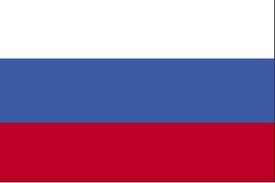 Calls for 'Vigilance' on Russian Military Buildup in Arctic. Calls for 'Vigilance' on Russian Military Buildup in Arctic. Moscow has been building its military presence in the Arctic, and one Russia scholar says she's grown increasingly concerned. While Russia's Arctic ambitions worry regional experts, so do the lack of ambitions on the part of the United States. Heather Conley is Europe program director at the Center for Strategic and International Studies. She brought satellite photos to a forum at the U.S. Senate, to show a remote Russian island, three hundred miles from Alaska's northwest coast. KTOO
European Waters Drive Ocean Overturning, Key for Regulating Climate Change. An international study reveals the Atlantic meridional overturning circulation, which helps regulate Earth's climate, is highly variable and primarily driven by the conversion of warm, salty, shallow waters into colder, fresher, deep waters moving south through the Irminger and Iceland basins. This upends prevailing ideas and may help scientists better predict Arctic ice melt and future changes in the ocean's ability to mitigate climate change by storing excess atmospheric carbon. Science Daily
|
|
Future Events
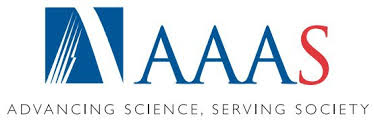
Part of the AAAS meeting: Science in the New Arctic: The Converging of Natural and Social Sciences, (February 17, 2019). Organized by Andrey Petrov and Jack Kaye, moderated by Jessica Graybill, and with John Farrell as Discussant. Included talks are "Indigenous Knowledge and Interdisciplinary Science in the Arctic" (Carolina Behe), "Towards Knowledge Co-production in the Arctic" (Dmitry Streletskiy), and "Enhancing International Research in the Arctic" (Paul Berkson).
Arctic sciences are at the forefront of discovery resulting from research that engages indigenous knowledge and connects to policy decisions about the region. This session brings together speakers from various disciplines representing multiple organizations to discuss recent achievements in Arctic sciences with respect to fundamental and policy-focused interdisciplinary and international research. Topics to be addressed include examples of Arctic-based research that crosses regional and disciplinary boundaries, and the key methodological strengths of this research, as well as how Arctic-based research could contribute to disciplines and research in other regions, and the role of funding agencies in advancing this exchange.
 of the AAG includes over 8,500 geographers converging from the U.S., Canada, and nearly 60 other countries in a typical year including geographers, GIS specialists, environmental scientists, and other leaders for the latest in research and applications in geography, sustainability, and GIScience. of the AAG includes over 8,500 geographers converging from the U.S., Canada, and nearly 60 other countries in a typical year including geographers, GIS specialists, environmental scientists, and other leaders for the latest in research and applications in geography, sustainability, and GIScience.
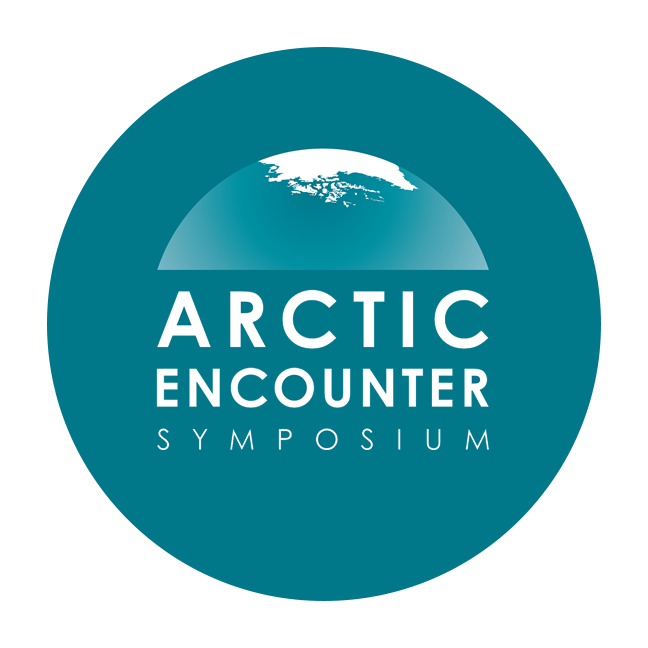 The 6th Annual Arctic Encounter Seattle, April 25-26, 2019 (Seattle, WA, USA). The sixth annual Arctic Encounter Seattle will engage the topic of innovation in the Arctic, specifically disruptive business and investment models, energy and power, climate research, national security, new economic and trade models, and popular media and awareness movements impacting the Far North. The 2018 Arctic Encounter Seattle drew over 300 participants from across Alaska, the U.S., and the world, including over 100 speakers, 32 sponsors, 11 media partners, fashion and photography installations, a live permafrost exhibition, 13 guest performers, fashion designers, and artist exhibitors to the downtown Seattle waterfront at Pier 66. The 2019 Arctic Encounter Seattle expects to increase engagement in new sectors and engage participants through policy debates, research presentations, performances, and more. The two-day Arctic Encounter Seattle will include an opening reception, two continental breakfasts, two keynote luncheons, a networking reception with Alaskan glacier ice cocktails, and a seated three course dinner including keynotes and live musical entertainment from the Far North. The Arctic Encounter is the largest annual Arctic policy and business conference convening in the United States, with partnerships and convening efforts worldwide. The 6th Annual Arctic Encounter Seattle, April 25-26, 2019 (Seattle, WA, USA). The sixth annual Arctic Encounter Seattle will engage the topic of innovation in the Arctic, specifically disruptive business and investment models, energy and power, climate research, national security, new economic and trade models, and popular media and awareness movements impacting the Far North. The 2018 Arctic Encounter Seattle drew over 300 participants from across Alaska, the U.S., and the world, including over 100 speakers, 32 sponsors, 11 media partners, fashion and photography installations, a live permafrost exhibition, 13 guest performers, fashion designers, and artist exhibitors to the downtown Seattle waterfront at Pier 66. The 2019 Arctic Encounter Seattle expects to increase engagement in new sectors and engage participants through policy debates, research presentations, performances, and more. The two-day Arctic Encounter Seattle will include an opening reception, two continental breakfasts, two keynote luncheons, a networking reception with Alaskan glacier ice cocktails, and a seated three course dinner including keynotes and live musical entertainment from the Far North. The Arctic Encounter is the largest annual Arctic policy and business conference convening in the United States, with partnerships and convening efforts worldwide.
Save the Date! 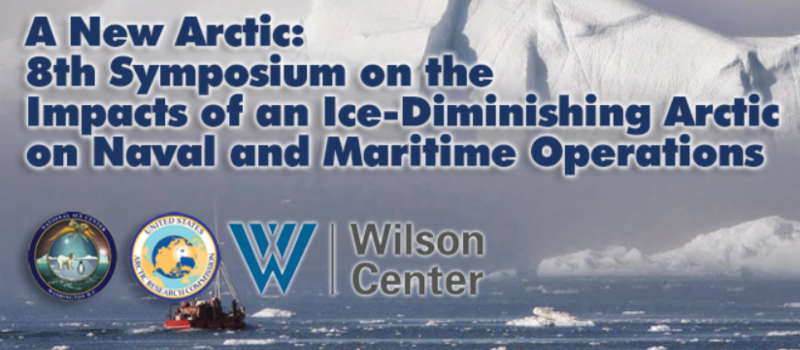
Mark your calendars to attend IDA-8, which some have called one of the best Arctic gatherings around. Historically, this biennial symposium was co-hosted by U.S. National/Naval Ice Center (NIC) and the US Arctic Research Commission (USARC). In 2019, these partners will join forces with the preeminent Wilson Center's Polar Institute, as a third co-host. The now 2-day symposium will be held in the Ronald Reagan Building Amphitheater, in Washington, DC. The event will focus on a broad cross-section of naval and maritime operations and issues in an ice-diminishing Arctic. The symposium brings together nationally and internationally recognized experts on Arctic governance, geopolitics, marine operations, infrastructure, science, and environmental observations, from the local, regional, and pan-Arctic scale. Information on prior symposia, including lists of speakers, video clips, and copies of presentations, is available here. Attendance is free, and registration will begin in Spring 2019. The event will be webcast live, and video recorded.
|
|

  
4350 N. Fairfax Drive, Suite 510
Arlington, VA 22203, USA
External links in this publication, and on the USARC's World Wide Web site ( www.arctic.gov) do not constitute endorsement by the US Arctic Research Commission of external Web sites or the information, products or services contained therein. For other than authorized activities, the USARC does not exercise any editorial control over the information you may find at these locations. These links are provided consistent with the stated purpose of this newsletter and the USARC Web site.
|
|
|
|
|
|
|
|
|